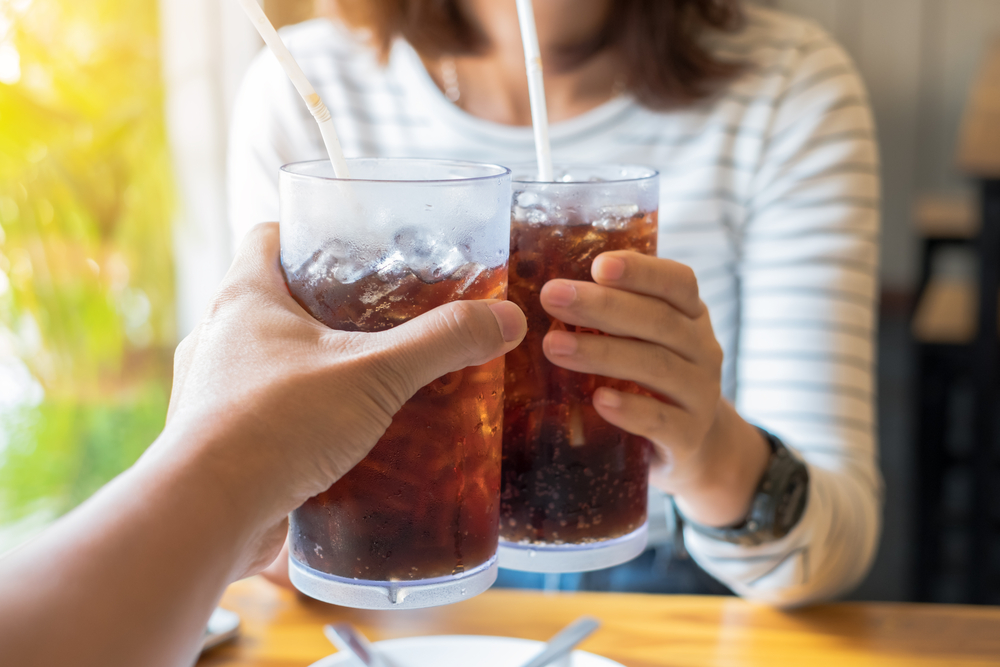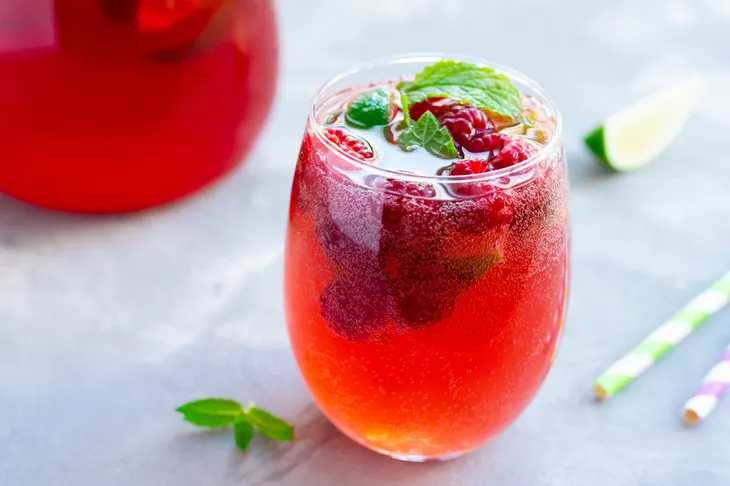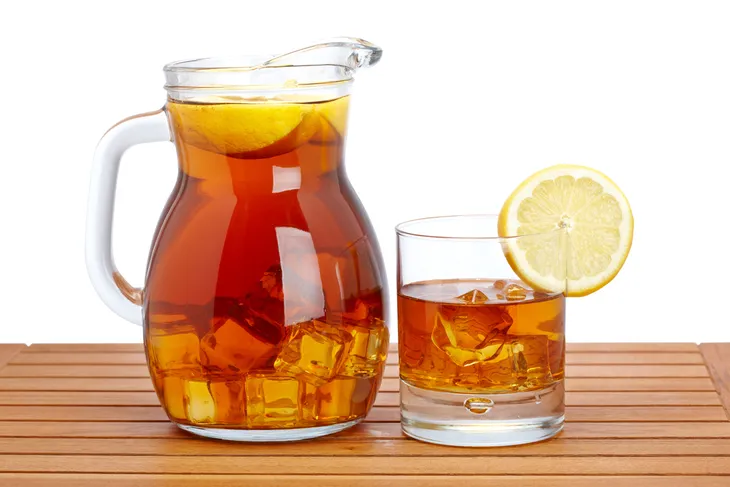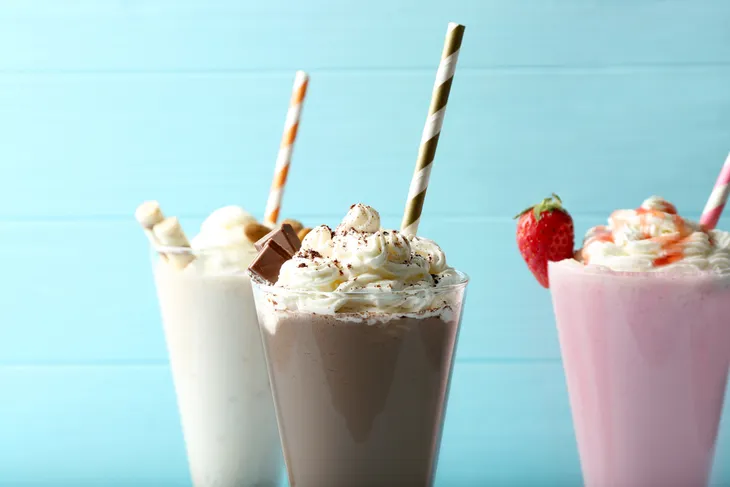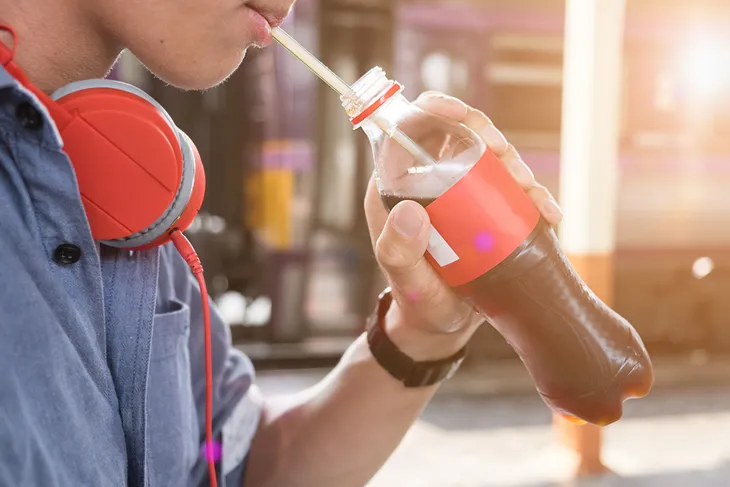It’s HOT outside! But before you reach for a favorite soda, iced coffee, or beer to help quench your thirst and cool down, consider that not all drinks are considered equal on a hot, sweaty day.
Despite what others might say, the following tried and true summer beverages won’t cool you down on a sweltering day. In fact, drinking them may lead to dehydration, heat stroke…or even worse!
Tea
You’ve likely heard this slice of wisdom from an elder relative, “The best thing to drink on a hot day is a hot beverage”. While this sage advice goes against my beverage choices for cool down, a billion Brits can’t be wrong, right?
According to an NPR interview with Neuroscientist, Peter McNaughton, from University of Cambridge, this practice is counterintuitive, “Obviously a hot drink makes you hotter and a cold drink makes you colder. So why would you want to [drink a beverage that makes you] hotter on a hot day?” According to McNaughton, a specific on the tongue, called the TRPV1, responds to heated foods and drinks, signaling the brain to trigger the perspiration (or body cool down) mechanism. So in essence, drinking hot tea on a hot day will make you sweat even more.
Coffee
You likely know that caffeinated beverages, like coffee, tend to cause dehydration. However, Heather Mangieri, Registered Dietitian Nutritionist and spokesperson for the Academy of Nutrition and Dietetics, claims your risk of dehydration from sipping java have more to do with your personal caffeine intake than they do with the temperature you’re drinking them in.
For instance, the research notes that caffeinated beverages like coffee or soda can increase daily fluid intake for caffeine addicts (aka: those who consume a lot of caffeine). However, for those who aren’t used to slurping down iced coffee, an iced latte, followed by a pot of coffee, my experience a stronger caffeine impact to coffee drinks on a hot, steamy day. Either way, caffeine still has a diuretic effect, according to the Mayo Clinic, so even if you drink a lot of coffee, you should be drinking water in between cups to refill your fluid stores.
Booze or Cocktails
I know what it’s like. As soon as the sunshine dries out my back patio, I’m out there enjoying a frosty beer or hard cider. However, according to the experts, alcoholic drinks (including mixed cocktails, beer, wine, or spirits) aren’t the best choice on a hot, humid day. Why?
Consider this research from John Hopkins Medicine before you order a second pitcher of brews for you and the boys (or gals). Heat stroke can quickly occur due to long, extreme sun exposure to the sun, and drinking alcohol makes you even more susceptible. Remember that alcohol, like caffeine, is a powerful diuretic that increases urination while increasing the risk of dehydration and rapidly developing heat stroke. So be sure to alternate cocktails with water.
Iced Tea Sweetened with Sugar
When it comes to exerting yourself on a hot day, water is always your very best option to remain hydrated. Iced tea with loads of added sugar and calories might be an iconic summer drink for cooling off. However, this Southern classic may do a number on your stomach and digestive system if you’re suffering from low fluid levels.
According to research from the American Heart Association, you should drink plenty of water before even venturing out on a hot, sweaty day, and continue to drink plain water to dehydrate while you’re out in the open sun. If you feel thirsty, it’s a sign that you’re already dehydrated and your heart is under strain, claims Dr. John Batson, Sports Medicine Physician volunteer with the Heart and Stroke Foundation.
Milkshakes and Ice Cream
It’s almost a habit to visit a local ice cream or sundae shop for a cold treat on a hot, summer’s day. However, high caloric, creamy desserts and milkshakes are not an ideal option for cooling down. An article from theConverstation.com reveals that even though a cold treat feels like it blasts the hot spot, taxing your digestive system with high caloric content will increase your body temperature.
The article explains that the small amount of cold liquid in that milkshake “loses any cooling effect…as soon as it’s warmed up by the surrounding organs”. This metabolism-triggering effect occurs shortly after ingestion as your digestive system begins to break down and absorb the nutrients in food, and transport those nutrients to your cells.
Soda
Drinking too much soda is already linked to so many negative health factors—damage to oral health, heart disease, weight gain, and type II diabetes. But consider this study from the American Physiological Society, which associates drinking soda with increased risk of dehydration.
The study monitored the impacts of simple sugars (glucose and fructose) in soft drinks (which contain these sugars) to chronic dehydration and kidney disease in lab rats. The animals were exposed to 36 degree Celsius heat and given plain water, soda, or water sweetened with stevia for a period of 4-weeks. Following the study, the rat’s kidneys showed signs of inflammation, damage, and oxidative stress. Makes you think twice about cooling down with a soda.
